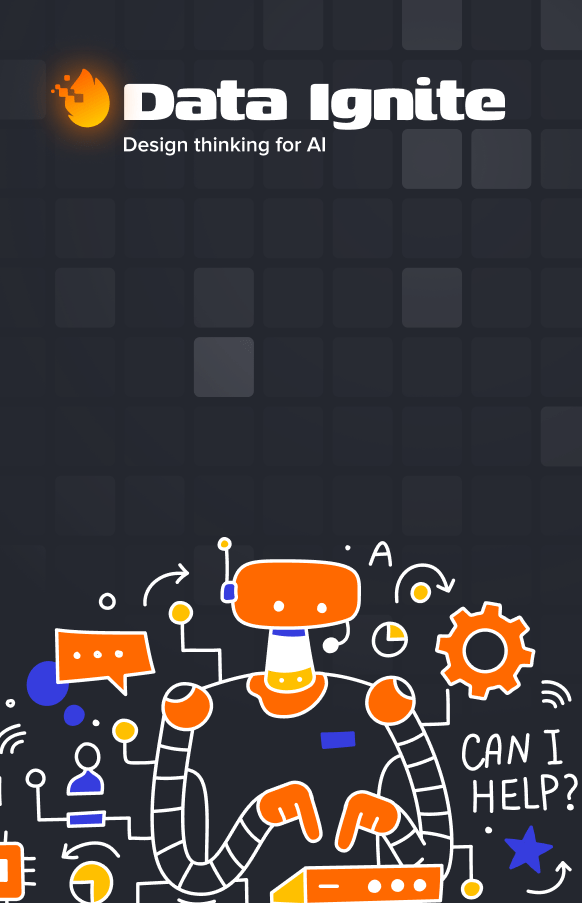Digital business transformation examples: 10 Real-World Case Studies
Feb 10, 2026 in Listicle: Examples
Discover digital business transformation examples and how AI, data, and strategy fuel growth with practical, actionable insights.
Not a member? Sign up now
18 applications and main challenges
Kelwin on Feb 7, 2023
While many industries have benefited from Artificial Intelligence, Real Estate is essentially a virgin territory to apply AI. This blog post will show you how you can transform Real Estate with AI, the key consumers of these solutions, and the challenges the industry faces in its adoption.
Suppose you are running a Multiple Listing Service, a Real Estate agency chain, an investment fund, or you simply want to create a startup in the industry. In that case, you will discover dozens of use cases to optimize your Real Estate operations with Artificial Intelligence.

Build your company data roadmap using our Data Ignite methodology
Learn MoreThe primary consumers of Artificial Intelligence models in Real Estate lay in four groups:
Each of these groups optimizes for different targets at different stages of the property lifecycle. As such, they require various forms of support AI can provide. Therefore, we will divide the applications according to their target user:
Here, we will include both buyers and sellers. As well as professional investors and homeowners. Most of the AI applications for Real Estate investors consist of accurately estimating KPIs about individual properties and markets. Examples of such indicators include:
Realtors are salespeople with a steroid charge of street knowledge about Real Estate. As such, the applications of AI for realtors are similar to those observed in general marketing and CRM for optimizing the customer journey. You can learn more about it in our Youtube video: 11 AI use cases in Marketing to improve your customer journey. In summary, AI can help realtors optimize the overall sales funnel:
In 2021, we won an open innovation challenge promoted by Vonovia and the Hands-on Data Initiative. Vonovia is one of the largest European companies, with over 500k units. In the challenge, we worked on a recommender system (called Flat Finder) to help Vonovia suggest better-suited flats to their leads, improving the overall customer experience and minimizing the time to find the right apartment.

In 2023, Vonovia launched three open innovation challenges through Hands-on Data. All of them with a focus on optimizing the management of properties. We won the Image Insight challenge, triggering a new collaboration between NILG.AI and Vonovia. In the challenge, we want to identify and characterize the damages on a tenant request, understanding who is the right team to proceed with the work and what replacement parts would be required. The other two challenges focused on optimizing the workforce for renovation (i.e., understanding delays, reducing bottlenecks, etc.) and optimizing the energy efficiency of the apartments through dynamic control of their heating systems.
Book a meeting with Kelwin Fernandes
Do you want to further discuss this idea?
We have worked with several clients in the industry. However, as a whole, we haven’t seen a major adoption of AI in Real Estate. There are four main reasons Real Estate hasn’t fully benefited from Artificial Intelligence compared with other industries:
Most open data comes from Multiple Listing Services (MLS) such as idealista and imovirtual in Portugal, which isn’t entirely reliable. We face problems such as duplicate listings, low-quality entries, and, most importantly, the data is about asking prices but doesn’t consider the final transaction value. So, data is biased and represents an overestimate of an essential value in Real Estate: price.

Multiple listing services have a dominant position here, since they can benefit from the scale they get through the aggregation of massive amount of data and access to end customers. So, the suit spot to run AI models in Real Estate is at MLS.

So, street knowledge is crucial if we want to compete with local stakeholders, and we need ways of creating relevant human-machine interactions when assessing properties.

Given the landscape we just depicted, there are two possible scenarios for using Artificial Intelligence in Real Estate.
In any of these scenarios, we can help you find and execute AI solutions that succeed in this industry.
Like this story?
Special offers, latest news and quality content in your inbox.
Feb 10, 2026 in Listicle: Examples
Discover digital business transformation examples and how AI, data, and strategy fuel growth with practical, actionable insights.
Feb 6, 2026 in Resources
Discover the 12 best AI tools for small business success. Our guide covers strategic insights, pros & cons, and how to choose the right AI partner.
Feb 3, 2026 in Guide: How-to
Master customer retention rate calculation with this practical guide. Learn the formulas, see real-world examples, and get actionable tips for business growth.
| Cookie | Duration | Description |
|---|---|---|
| cookielawinfo-checkbox-analytics | 11 months | This cookie is set by GDPR Cookie Consent plugin. The cookie is used to store the user consent for the cookies in the category "Analytics". |
| cookielawinfo-checkbox-functional | 11 months | The cookie is set by GDPR cookie consent to record the user consent for the cookies in the category "Functional". |
| cookielawinfo-checkbox-necessary | 11 months | This cookie is set by GDPR Cookie Consent plugin. The cookies is used to store the user consent for the cookies in the category "Necessary". |
| cookielawinfo-checkbox-others | 11 months | This cookie is set by GDPR Cookie Consent plugin. The cookie is used to store the user consent for the cookies in the category "Other. |
| cookielawinfo-checkbox-performance | 11 months | This cookie is set by GDPR Cookie Consent plugin. The cookie is used to store the user consent for the cookies in the category "Performance". |
| viewed_cookie_policy | 11 months | The cookie is set by the GDPR Cookie Consent plugin and is used to store whether or not user has consented to the use of cookies. It does not store any personal data. |